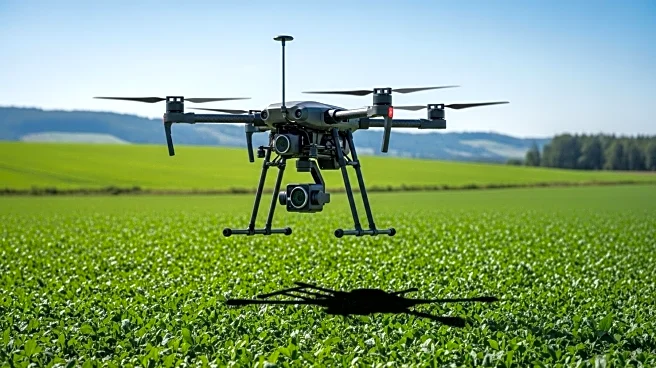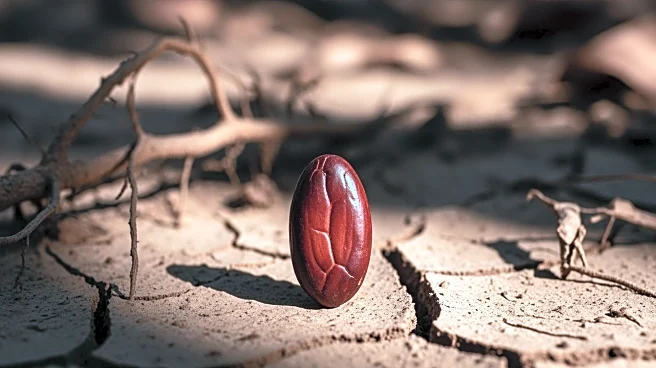What's Happening?
The Farm Progress Show in Decatur, Illinois, showcased significant advancements in precision farming technology. Among the highlights was the introduction of the EAVision J150 drone by Agri Spray Drones, which features a 20-gallon tank and can cover over 65 acres per hour. InnerPlant's CropVoice technology made history by detecting an active fungal infection in real-time, providing farmers with a crucial head start in managing crop stress. Major agricultural equipment manufacturers like John Deere and Case IH emphasized precision technology, with John Deere displaying 'autonomy building blocks' and Case IH showcasing SenseApply and Harvest Command technology. Additionally, Boeck Farm Outfitters became the first U.S. dealership to sell and service Greeneye Technology, a smart spray system. Solinftec announced its expansion into new states, aiming to enhance farming operations with its Solix robots.
Why It's Important?
The advancements in precision farming technology are crucial for improving agricultural efficiency and sustainability. Drones like the EAVision J150 can significantly enhance crop management by covering large areas quickly, while technologies like CropVoice provide early detection of crop stress, potentially saving yields. The emphasis on precision technology by major manufacturers indicates a shift towards more autonomous and efficient farming practices. This can lead to reduced resource usage and increased productivity, benefiting farmers economically and contributing to environmental conservation. The expansion of companies like Solinftec into new regions suggests a growing acceptance and demand for these technologies, which could transform farming practices across the U.S.
What's Next?
As precision farming technologies continue to evolve, their adoption is likely to increase among U.S. farmers. The expansion of Solinftec's operations into additional states indicates a growing market for autonomous farming solutions. Farmers and dealerships may need to invest in training and infrastructure to support these advanced technologies. The ongoing development and integration of precision tools could lead to further innovations, potentially revolutionizing agricultural practices and enhancing food security. Stakeholders, including policymakers and industry leaders, may focus on supporting these technologies through incentives and research funding.
Beyond the Headlines
The integration of precision farming technologies raises ethical and cultural considerations, such as the impact on traditional farming practices and the potential displacement of labor. As these technologies become more prevalent, there may be discussions around data privacy and the ownership of information generated by autonomous systems. Long-term, these innovations could lead to shifts in agricultural policy and the global food supply chain, emphasizing sustainability and efficiency.










